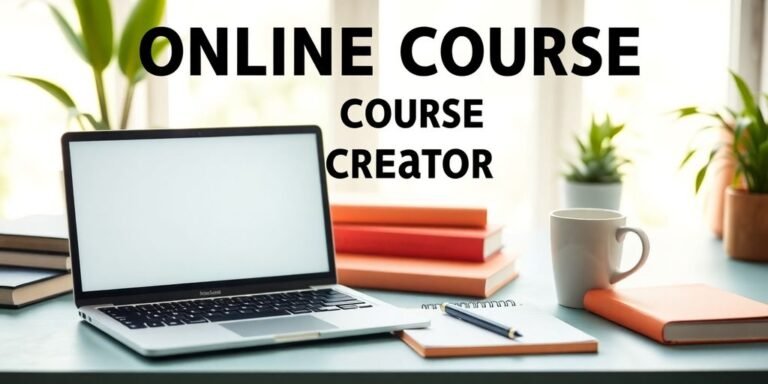Education is a vital part of our lives, but it can be very expensive. Many students and their families struggle with the high costs of traditional schooling. This article will explore different ways to save money on education while still getting a good learning experience. From free online courses to community resources, there are many affordable options available for everyone.
Key Takeaways
- Affordable education is important for everyone.
- Free online courses can help you learn new skills without spending money.
- Open Educational Resources (OER) offer free materials for students.
- Community resources like libraries can support your learning journey.
- Scholarships and financial aid can make education more accessible.
Understanding the Importance of Affordable Education
The Rising Costs of Traditional Education
The cost of going to college has been increasing for years. Many students and their families are feeling the pressure of these rising costs. College affordability is a major concern, as it affects who can attend and finish their education.
Impact on Students and Families
High education costs can lead to stress for students and their families. Some common effects include:
- Increased student debt
- Delayed career choices
- Limited job opportunities after graduation
Long-term Benefits of Cost-effective Learning
Finding affordable education options can lead to better outcomes in the long run. Students who manage to save money on their education can:
- Graduate with less debt
- Invest in their future careers
- Enjoy a better quality of life
Affordable education is not just a dream; it is a necessity for many families today.
In conclusion, understanding the importance of affordable education is crucial for students and families. The majority of Americans believe in the value of higher education. But, in order to attend and complete college, students must first be able to afford it.
Exploring Free Online Courses and Platforms

Top Free Learning Platforms
There are many great platforms where you can learn for free. Here are some of the best ones:
- edX: Offers thousands of courses from top universities like Harvard and Google. You can build new skills and advance your career.
- Coursera: Provides access to courses from universities and companies, often for free.
- Khan Academy: A non-profit that offers free lessons in a variety of subjects.
How to Maximize Free Course Benefits
To get the most out of free courses, consider these tips:
- Set clear goals for what you want to learn.
- Create a study schedule to stay on track.
- Engage with other learners in forums or study groups.
Success Stories from Free Online Learners
Many people have changed their lives through free online learning. Here are a few examples:
- A student learned coding on edX and landed a job at a tech company.
- A stay-at-home parent took free courses on Coursera and started a new career in graphic design.
- An adult learner used Khan Academy to improve math skills and passed a difficult exam.
Free online courses can open doors to new opportunities and help you achieve your dreams!
Utilizing Open Educational Resources (OER)
What are Open Educational Resources?
Open Educational Resources, or OER, are free materials that anyone can use for learning. They include things like textbooks, videos, and courses. OER helps make education more affordable and accessible for everyone.
Benefits of Using OER
Using OER has many advantages:
- Cost savings: You can save a lot of money on textbooks and other materials.
- Flexibility: You can learn at your own pace and choose what you want to study.
- Variety: There are many different types of resources available, so you can find what works best for you.
Finding Reliable OER Materials
To find good OER materials, you can:
- Search online databases that specialize in OER.
- Check with your school or local library for recommended resources.
- Join online communities where people share OER materials.
OER is a great way to learn without breaking the bank. It opens up new opportunities for students everywhere.
| Type of OER | Examples |
|---|---|
| Textbooks | OpenStax, Project Gutenberg |
| Courses | Coursera, edX |
| Videos | Khan Academy, YouTube |
Leveraging Community Resources for Learning
Local Libraries as Learning Hubs
Local libraries are more than just places to borrow books; they are vital community resources. Many libraries offer free access to computers, study spaces, and even workshops. Here are some benefits of using your local library:
- Free internet access
- Study rooms for group work
- Educational programs for all ages
Community Workshops and Seminars
Community centers often host workshops and seminars that can help you learn new skills. These events are usually free or low-cost. Some popular topics include:
- Cooking classes
- Computer skills
- Financial literacy
Volunteer Opportunities for Skill Development
Volunteering is a great way to gain experience while helping others. Many organizations need volunteers, and you can learn valuable skills in the process. Consider these options:
- Tutoring younger students
- Assisting in community gardens
- Helping at local events
Community resources can be a game-changer for your education. They provide opportunities to learn and grow without breaking the bank.
In addition, leveraging community-based organizations can help accelerate your learning journey. For example, some organizations receive funding to implement tutoring models that can greatly benefit students.
By taking advantage of these resources, you can enhance your education and develop new skills without spending a lot of money.
Scholarships and Financial Aid Options
Types of Scholarships Available
There are many different types of scholarships that students can apply for. Here are some common categories:
- Merit-based scholarships: These are awarded based on academic achievements or talents.
- Need-based scholarships: These are given to students who show financial need.
- Subject-specific scholarships: These are for students studying a particular field, like science or art.
How to Apply for Financial Aid
Applying for financial aid can be a straightforward process if you follow these steps:
- Complete the FAFSA: This is the federal student aid (fafsa) form that helps determine your eligibility for financial aid.
- Gather necessary documents: You will need tax returns, bank statements, and other financial information.
- Submit your application on time: Make sure to check deadlines to ensure you don’t miss out on aid.
Tips for Winning Scholarships
Winning a scholarship can be competitive, but here are some tips to improve your chances:
- Start early: Begin your search and applications as soon as possible.
- Tailor your application: Customize your essays and applications to fit each scholarship’s requirements.
- Ask for recommendations: Get letters from teachers or mentors who know you well.
Scholarships and financial aid can make a big difference in your education costs. Every bit helps!
Cost-effective Textbook Alternatives
E-books and Digital Textbooks
E-books and digital textbooks are becoming popular because they are often cheaper than traditional printed books. Many students find them easier to carry and access on various devices. Using e-books can save you a lot of money. Here are some benefits of e-books:
- Lower prices compared to printed books
- Instant access after purchase
- Searchable text for quick reference
Textbook Rental Services
Renting textbooks is another great way to save money. Instead of buying a book that you might only use for one semester, you can rent it for a fraction of the cost. Here are some popular rental services:
- Chegg
- Amazon Textbook Rentals
- Campus bookstores
Sharing and Borrowing Textbooks
Sharing textbooks with friends or classmates can also help reduce costs. You can form a study group and split the cost of books. Additionally, many local libraries offer textbooks for borrowing. This way, you can access the materials you need without spending a lot.
Textbook alternatives can significantly reduce your education costs, making learning more accessible for everyone.
In summary, exploring textbook alternatives like e-books, rental services, and sharing options can help you save money while still getting the education you need. Consider these options to make your learning experience more affordable!
DIY Learning: Self-study and Skill Development

Creating a Self-study Plan
Creating a self-study plan is a great way to learn at your own pace. Here are some steps to help you get started:
- Set clear goals: Decide what you want to learn and why.
- Choose your resources: Find books, videos, or websites that can help you.
- Make a schedule: Set aside time each week to study.
Utilizing Online Tutorials and Videos
Online tutorials and videos are fantastic tools for learning new skills. Here are some popular platforms:
- YouTube: A vast resource for free tutorials on almost any topic.
- Khan Academy: Offers lessons in math, science, and more.
- TED Talks: Great for expanding your thinking and learning from experts.
Balancing Self-study with Formal Education
It’s important to balance self-study with your regular schoolwork. Here are some tips:
- Stay organized: Keep track of your assignments and study materials.
- Ask for help: Don’t hesitate to reach out to teachers or friends if you need support.
- Take breaks: Make sure to rest to keep your mind fresh.
Self-study can be a powerful way to learn. By taking charge of your education, you can explore topics that interest you and develop new skills at your own pace.
In summary, DIY learning through self-study is an effective way to gain knowledge and skills. With the right plan and resources, anyone can become a successful self-learner!
Conclusion
In conclusion, saving money on education is possible with the right resources. By exploring free online courses, using library materials, and taking advantage of discounts, students can learn without breaking the bank. Remember, education doesn’t have to be expensive. With a little creativity and effort, anyone can find affordable ways to gain knowledge and skills. So, keep looking for smart options, and make the most of your learning journey!
Frequently Asked Questions
What are some affordable ways to learn new skills?
You can learn new skills for free or at a low cost by using online courses, checking out local libraries, or joining community classes.
How can I find free online courses?
Many websites offer free courses, like Coursera, edX, and Khan Academy. Just search for free courses in the subject you want to learn.
What are Open Educational Resources (OER)?
OER are free materials that anyone can use for learning. This includes textbooks, videos, and lesson plans.
Can I get help paying for my education?
Yes! There are scholarships and financial aid options available. You can apply for these to help cover costs.
Are there alternatives to buying textbooks?
Absolutely! You can rent textbooks, use e-books, or even borrow from friends or the library.
How can I create a good self-study plan?
Start by setting clear goals for what you want to learn. Then, make a schedule and stick to it. Use online resources to guide your study.





